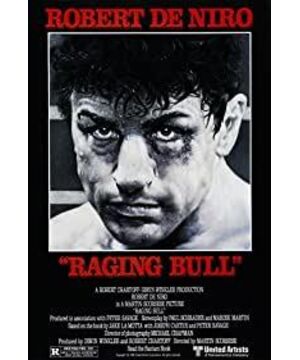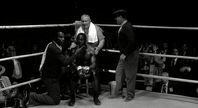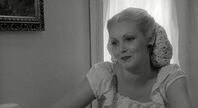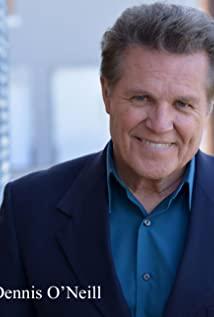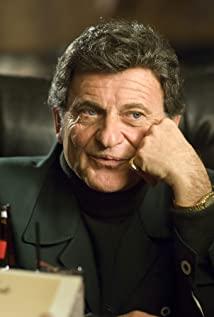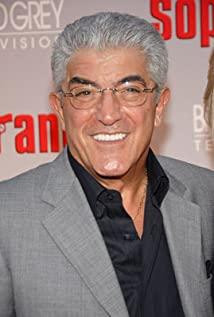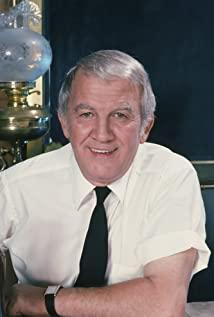Director Martin Scorsese is a devout Catholic, so "Angry Bull" has a lot of religious colors. The most important part is the third match between jack la motta and suger ray robinson: the first thirteen rounds. , Jack beat his old enemy very well, but in the final round, Jack gave up offensive and resisted, attached to the side rope, and withstood Robinson's crazy attack. In the end, the referee had to terminate the game, ruling Robinson to win, defending the champion smoothly, and snatching the gold belt from Jack. This is Jack's last game.
In this paragraph, Martin used a very close-up to describe how Jack was beaten: especially when he opened his hands and twisted the side ropes, Robinson's uppercut made him bloody. Reminiscent of Martin’s Catholic identity, Martin deliberately portrayed Jack as a crucified Christ. The director also gave a close-up to Jack’s opponent Robinson. He raised his fist high, punched from top to bottom, and hit Jack hard—this kind of action would not happen in boxing—but this work is not the same as the ancient one. The salute of Roman soldiers is very similar. Martin used this action to depict a kind of dictatorial violence. This violence crucified Christ on the cross and also beat Jack to the ground.
The West is heavily influenced by Christianity. They believe that the greatest thing about a man lies in the torture he has suffered for his career. In his greatest work "The Old Man and the Sea", Hemingway also described a small detail of the tiredness on the bed after returning from fishing in San Diego. Santiago lay straight on the bed, his face lying on the bed sheet, his hands stretched out, palms up-also imitating the crucified Christ.
However, I don't really like the role of jack la motta. Since both Martin and Hemingway are creating real men, the image of Jack is not as shining as the image of San Diego.
Jack la motte is a real person, and "Angry Bull" is also based on real things. It says that the boxer Jack has emerged as soon as he debuted, but because of his upright character, he refused to follow the Mafia's arrangements to release water in the game. Therefore, he has never been able to challenge the gold belt of the championship.
However, Jack did not insist on his true colors to the end. He still obeyed his brother's suggestion, and according to the Mafia's arrangement, he lost to a player who was far from him. Since then, his boxing career has gone flat. Successfully won the gold belt. In the end, he still couldn't stand the mercy of the Mafia, and gave up his golden belt, ending his boxing career. Decreased to be a master of ceremonies in a nightclub.
In "The Old Man and the Sea", when Santiago was dragged by a fish on the sea, he said a lot of lines, none of which was about compromise. For example: "Fish, come on, I will accompany you to death"; "Man can be defeated, but cannot be destroyed". To be destroyed, to be insulted, and to lose dignity is the most painful thing for a man.
After Jack compromised and lost the boxing match, the director moved the camera to the locker room. Robert Deloni's acting skills were so perfect in that period. Robert De Niro got rid of all the pretense and unnecessary play of being cool, and restored a man whose self-esteem had been tarnished. Robert De Niro cry as a man should cry.
Compared to the image of Santiago, Jack La Motte is really eclipsed. However, Jack La Motte is completely a real man. His shortcomings are as many as his brilliance. Hemingway tells us that if you are a man, you should be like San Diego; while Martin Scorsese tells us that a man is in the truest state.
We all like idols and heroes, and hate our true self. I like San Diego and I don't like jack. It is because his image is too close to our lives.
Martin Xsis is of Italian descent, and his age is the era when the Mafia was rampant. Most of Martin's works involve mafia themes. Like his "Good Guys" and "New York Gangs." And his gangster movies are very true reflections of the cruel greed of the mafia-and very directly-compared to Hong Kong gangster movies, it is like two black bosses standing on the roof and talking cool and humorous lines, Martinx Sith is more inclined to gang bosses when they are upset and blast other people's heads out of their heads. (Therefore, a friend of mine is used to calling the Hong Kong gang: an illegal organization of literary youth.)
In "Angry Bull", it is these people who nailed Jack to the cross.
But in "Angry Bull", there are not many descriptions of gangsters, or even positive descriptions. As mentioned earlier, this kind of "criminal violence" is described through a very obscure close-up.
There is also a paragraph where Tony, the representative of the gang, wants Jack's brother to reconcile with someone. The gang boss doesn't say much, but it is extremely influential. The guy who was squashed by joey was still wrapped in a bandage to negotiate, and the director specially focused the audience's attention on Salvy's bandage. Those who were labeled as such, because of Tony's "forget it", they all explained the previous suspicion of Joey, which shows that the New York gangs are not the literary youths of Hong Kong.
In Hemingway's "The Old Man and the Sea", this kind of violence is represented by a shark at the end of the article. I won’t enumerate that description. In short, changing a subject is similar to what Chinese textbooks describe the underworld terrorist capitalist hegemony.
The artistic existence of a hero should be a struggle against such forces. Victory is drama, and failure is tragedy. And Martin's no war and no peace-it is life.
Two paragraphs about judging men, one is: the performance of a mature man is that he is willing to live a humble life for his career; the other is: if you can't change your enemies, then you join them. Only by accomplishing these two points can a man be considered mature.
Therefore, we cannot be too harsh on Jack's compromise.
It's you and me, and both will compromise-unless you want to be shot out.
A successful artistic image should have two elements, either it can provide a guide for action, or it can give people comfort. This is why the theme of knight martial arts punishing evil and eliminating evil is always prosperous. Because we really can’t fight against certain acts of violence, we hope that a hero will remove violence on behalf of us.
However, compromise is easy to form a habit. There is a first time and there will be a second time. When compromises are repeated again and again, a man is easily destroyed.
Therefore, in his two great works "Three Biography of Giants" and "John Christopher", Romain Roland tried to create some images of fighting and never compromise. Heroes are great because they keep fighting.
After Jack got the gold belt, his career was at its peak. At this time, the conflict between his nature and the status quo of life is getting bigger and bigger. He is accustomed to compromise, accustomed to betraying dignity-but it is difficult for a man to get used to the pain of betraying dignity. Although Jack is not a hero, he is definitely a man.
Therefore, he can only choose to escape.
In the last game, he deliberately lost to his rival and gave up the gold belt.
The noble soul of the hero is also reflected here. Although he didn't fight back in the hand-to-hand match, he still provokes his opponent. He endured painful torture, but he absolutely refused to kneel down to beg for mercy. Martin used a lot of close-ups, as well as solemn boxing sounds, and the empty audience shouting-portraying this scene as an epic scene.
But the hero's soul has fallen. The essence of a hero is to fight bravely, not to endure bravely.
At this moment, Jack has fallen from a hero to a man-a real man. At the end of the game, the director also paid tribute to Jack Lo Motte through the broadcast: "He has endured a lot of heavy blows, how can he withstand so many heavy blows, no one knows, no one can bear so many... The game was terminated, and there was applause around him. People expressed respect for him. Jack Lo Motte was brave in this scene."
Jack said: I haven't been knocked down yet, ray, I haven't been knocked down yet.
The film is here, it's over. Heroes no longer exist. Jack's ups and downs will be introduced later, just the ups and downs of a man.
However, men will not lose the opportunity to become a hero again. Jack, who became a master of ceremonies, had a line at the beginning, saying: "I think back to every match, every hook, every stab
the worst way a person can get rid of weakness (referring to him relying on memories to enrich his emptiness. heart) "
in the film's final, jack also look in the mirror and said: you are the champion, to settle them.
Hemingway also wrote at the end of "The Old Man and the Sea" that San Diego and the child were going to use Ford's car steel plate to grind into pocket knives and go to sea again. How similar are these two paragraphs at the end!
Jack's attempt to make a comeback is certainly optimistic, but in any case, that period can only be regarded as the end of an old man's sorrow.
Ps: Personally, I always feel that heroism is an act of lack of maturity... I admit, I have fallen.
View more about Raging Bull reviews


